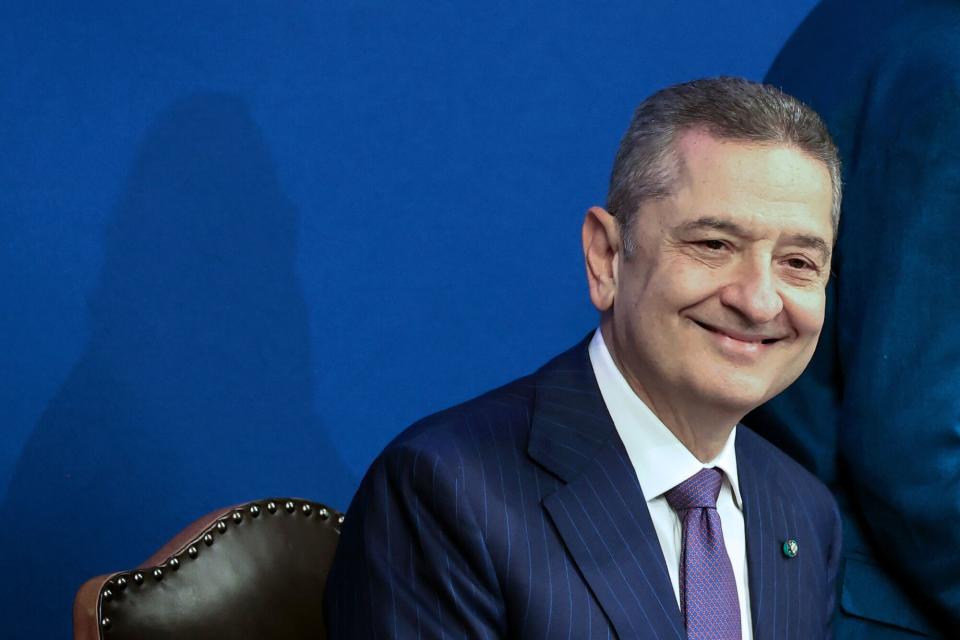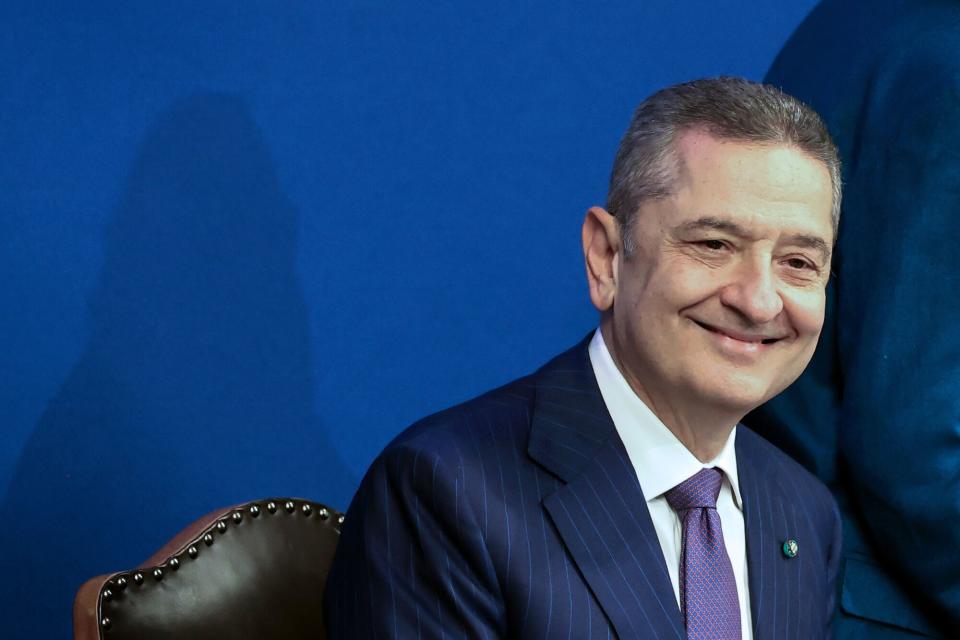Panetta Says ECB Must Be Ready to Handle Any Political Risks
(Bloomberg) -- European Central Bank policymakers must be ready to handle fallout from political risks that can occur amid heightened uncertainty, according to Governing Council member Fabio Panetta.
Most Read from Bloomberg
Bolivia’s President Arce Swears in New Army Chief After Coup Bid
China’s Finance Elite Face $400,000 Pay Cap, Bonus Clawbacks
SpaceX Tender Offer Said to Value Company at Record $210 Billion
Speaking in Helsinki on Wednesday just days before French voters go to the polls in the first round of choosing a new parliament, the Italian central bank chief said the inflation and growth projections used by officials offer “only one of many possible outcomes.”
“Monetary policy requires a management of risks and tail scenarios, not only baselines,” Panetta said. “Political and geopolitical risks remain high, and call for awareness, flexibility and state-contingent action plans.”
The comments arrive at a sensitive time in Europe, with the prospect that either Marine Le Pen’s far-right National Rally or a leftist alliance could win the most seats in the upcoming National Assembly elections. The backdrop last week left investors demanding the highest risk premium on French bonds since 2012.
“Political turnover physiologically translates into policy uncertainty: households and investors need to form a view on how incoming governments will handle many critical economic and political decisions,” Panetta said, without referring to any country in particular.
“It can trigger capital outflows and currency depreciations, creating upward price pressures,” he said. “But it could also shake confidence and weaken demand, halting or even reversing the fragile recovery we have seen so far.”
While an inflation shock could force a halt or even a reversal to interest-rate cuts, fiscal troubles might require an alternative response. With both France and Italy facing European Union reprimands for their big deficits and under the scrutiny of investors, the ECB has bond-buying tools to deploy in a crisis reminiscent of the region’s sovereign debt turmoil of the past decade.
“Central banks should be prepared to deal with the consequences of such shocks if and when they materialize,” the Italian governor said. “This implies a readiness to use the full range of tools at their disposal to adjust the monetary stance, addressing any threats to price stability, and protect the transmission mechanism of monetary policy.”
Panetta did acknowledge that Europe’s monetary policy cycle is at a “turning point” after an initial rate cut, and that observers are watching for that process to continue.
“The current macroeconomic picture is consistent with a normalization of the monetary stance,” he said. “The ECB duly started this process a few weeks ago and, in the baseline scenario, it will pursue it gradually and smoothly.”
He reiterated the ECB’s commitment to be data dependent and said that officials shouldn’t pay too much attention to “temporary blips in the data.”
Panetta’s Finnish colleague, Olli Rehn, told Bloomberg on Tuesday that investor expectations for two more reductions this year and a terminal rate as low as 2.25% in 2025 are “reasonable”, although he also stressed that the ECB is not pre-committed to any particular path.
--With assistance from Alexander Weber.
(Updates with quote in penultimate paragraph)
Most Read from Bloomberg Businessweek
The FBI’s Star Cooperator May Have Been Running New Scams All Along
How Glossier Turned a Viral Moment for ‘You’ Perfume Into a Lasting Business
How Jeff Yass Became One of the Most Influential Billionaires in the 2024 Election
©2024 Bloomberg L.P.

 Yahoo News
Yahoo News 


